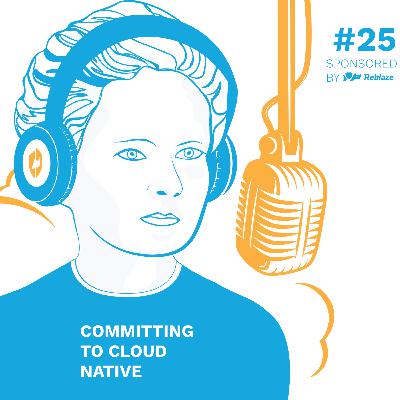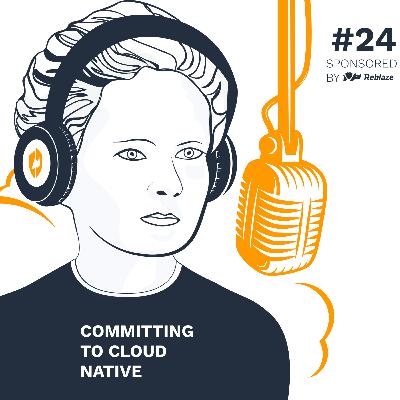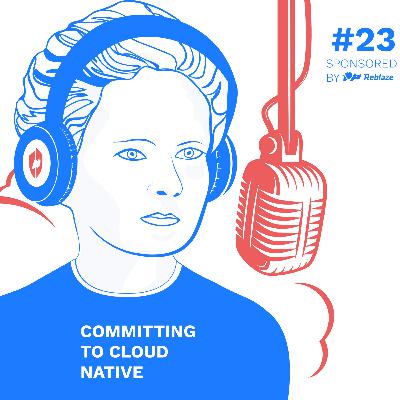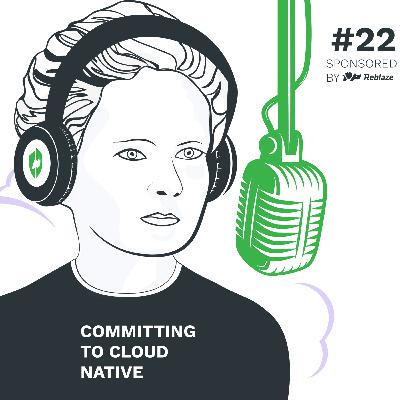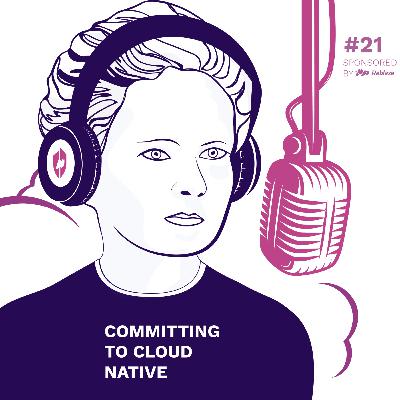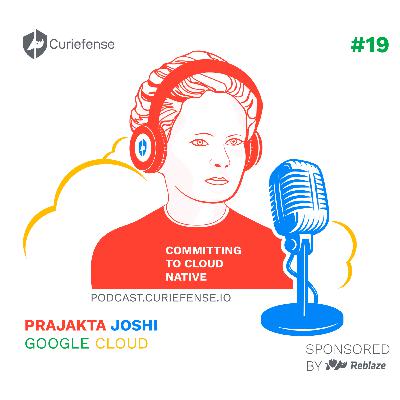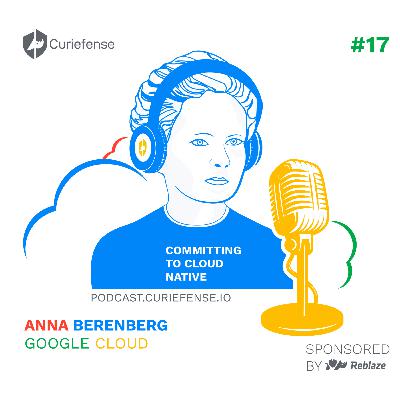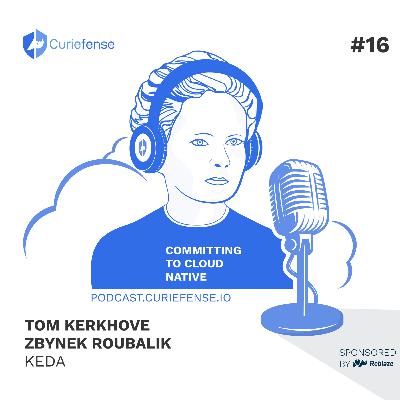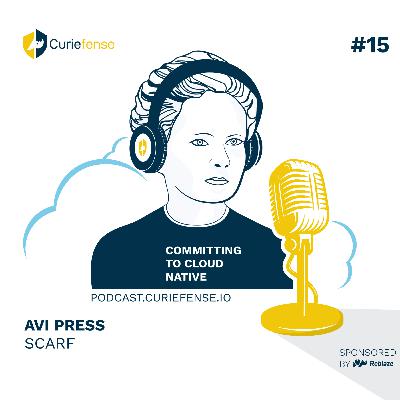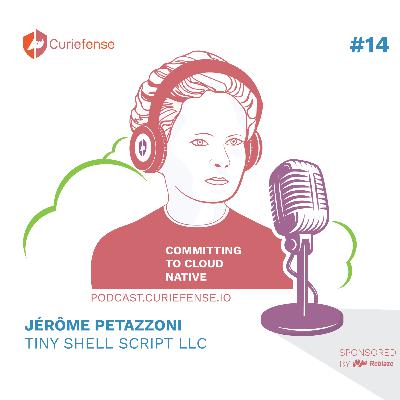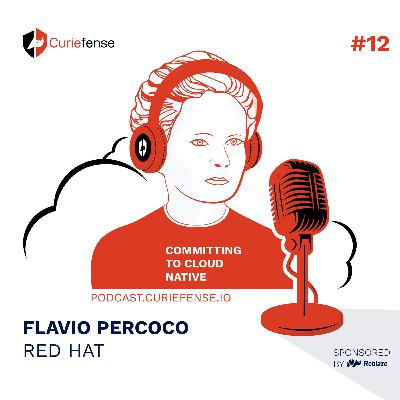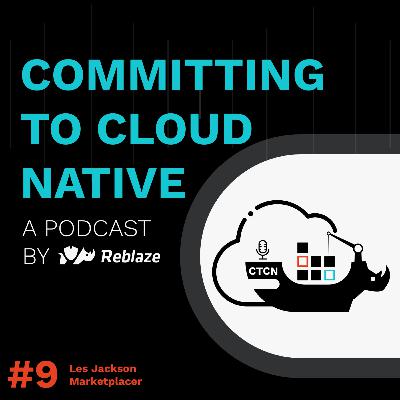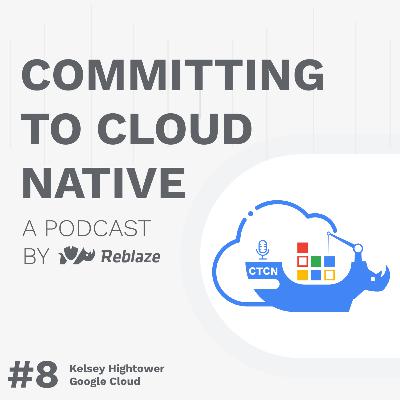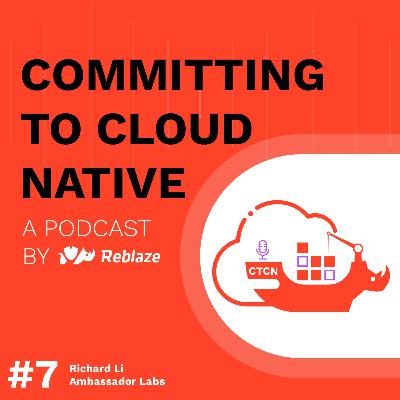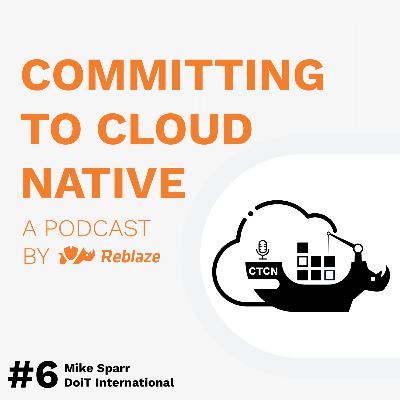Episode 13: From RabbitMQ to GitOps with Alexis Richardson
Description
Sponsored by Reblaze, creators of Curiefense
Panelists
Justin Dorfman | Tzury Bar Yochay
Guest
Alexis Richardson
Show Notes
Hello and welcome to Committing to Cloud Native Podcast! It’s the podcast by Reblaze where we talk about open source maintainers, contributors, sustainers, and their experiences in the Cloud Native space. We are super excited to have as our guest, Alexis Richardson, who is the co-founder and CEO of Weaveworks, the creator of GitOps that unlocks cloud native agility, reliability and scalability. Previously he was the TOC chairman at the CNCF, and co-founded RabbitMQ. Today, Alexis shares his advice on how to build a successful open source community and an open source company. Some key things he talks about if you want to build a successful business around open source are trust, communication, and incentives. Also, we learn more about Weaveworks, the products, and the solutions to make your life easier. Go ahead and download this episode now to learn much more from Alexis!
[00:01:23 ] Alexis shares with us his history of what he did in the tech industry before he co-founded Weaveworks.
[00:08:12 ] Tzury asks Alexis if people are preferring open source as sort of an insurance policy to get more confidence with the software they’re using, or are they actually preferring the open source so they can actively contribute and get involved in the development and patch.
[00:10:00 ] Alexis tells us that open source coincides with two phenomena that they’ve seen that are very important, self-service and agile.
[00:13:40 ] Alexis shares his thoughts on what an open source company is and how an open source company operates. He talks about Confluent and how they work on Kafka, which is an open source product.
[00:16:34 ] We learn from Alexis his recommendations if you want to build a successful business around open source.
[00:21:00 ] Alexis shares his advice on the secret of building a successful community, and he talks about trust, communication, and incentives.
[00:22:52 ] Justin asks Alexis how it went in terms of relying on the community to come up with those plugins he mentioned.
[00:25:29 ] We learn more about Weaveworks, the products, and the solutions.
[00:28:44 ] Alexis shares his opinion of the role of CNCF within the Cloud Native movement and the Cloud Native Open Source.
[00:29:59 ] We learn who coined GitOps, Alexis tells us why he’s a big fan of Kelsey Hightower, and Tzury asks Alexis how long he thinks it will take Kubernetes to be really simple to use.
[00:34:17 ] Alexis fills us in on the industry being cyclical, the new buyers, and if technologies are growing that rapidly.
[00:41:41 ] We end with Alexis saying to buy from Weaveworks and use GitOps to make your life easier.
Quotes
[00:02:55 ] “One of the lessons we had learned was that open source software was going to be how people would consume infrastructure, at least at some base level.”
[00:06:05 ] “Instead, we focused on, you know, solving problems for the cloud generation of apps represented by the Silicon Valley companies.”
[00:12:13 ] “And if you think about software developers as people, which we do now luckily, then it’s really easy to see that people want to have convenience in their work.”
[00:13:48 ] “An open source company is a company that primarily works with or produces open source tools in order to engage with customers who are users first because they have a free experience as well as potentially a paid experience.”
[00:15:17 ] “The question then becomes what is open, and for some companies, the answer has been everything has been open because we sell a complimentary product.”
[00:16:34 ] “Anyway, today my recommendation would be that you know, you really need to think that if you want to build a business around something open source, number one rule, your open source project has to be successful.”
[00:18:14 ] “So, you need to be a leader for your project to be successful and people need to be aware that you’re the leader. And for that to be true, you really need to be pretty fully featured.”
[00:20:13 ] “And obviously everyone knows that engineering the results those are not infinite, and nobody expects you to have all the features that they could possibly imagine, and you should always be prepared to say no.”
[00:21:19 ] “So the secret of good community is trust and communication, and I think thirdly, incentives.”
[00:21:46 ] “You can’t be a leader if you’re not actually telling people what’s going on.”
[00:22:30 ] “You need to find a way to encourage contributors to take ownership so then you can have an ecosystem.”
[00:22:58 ] “Well you have to seed it yourself. So, you need to go out and be prepared to go and find people to build first ones, and then you create the momentum.”
[00:24:48 ] “And once you have that, you’ll have enterprise series users coming along and you won’t just have small scale use or people with no money, but also people who actually have real business problems that need solving around operations, and scale and security and governance, automation, BI, AI, everything.”
[00:29:12 ] ”That is why we put our GitOps application CD tool Flux and our progressive delivery tool Flagger, for example, into the CNCF, so we can co-invest in them with Amazon and Microsoft and Alibaba for example.”
[00:36:22 ] “But if you’re building a business, it’s a really good chance to find areas where you can solve problems that generate revenue.”
Links
Cloud Native Community Groups-Curifense
“Kelsey, Kubernetes, and GitOps”-GitHub Universe 2020-YouTube
“A Hands-on Walk Through of GitOps”- Kelsey Hightower-GitOps Days 2020-YouTube
Credits
- Executive Produced by Tzury Bar Yochay
- Produced by Justin Dorfman
- Edited by Paul M. Bahr at Peachtree Sound
- Show notes by DeAnn Bahr at Peachtree Sound
- Transcript by Layten Pryce
Transcript
One of the lessons that we have learned was that Open source software was going to be how people would consume infrastructure, at least at some base level. We weren't sure exa


